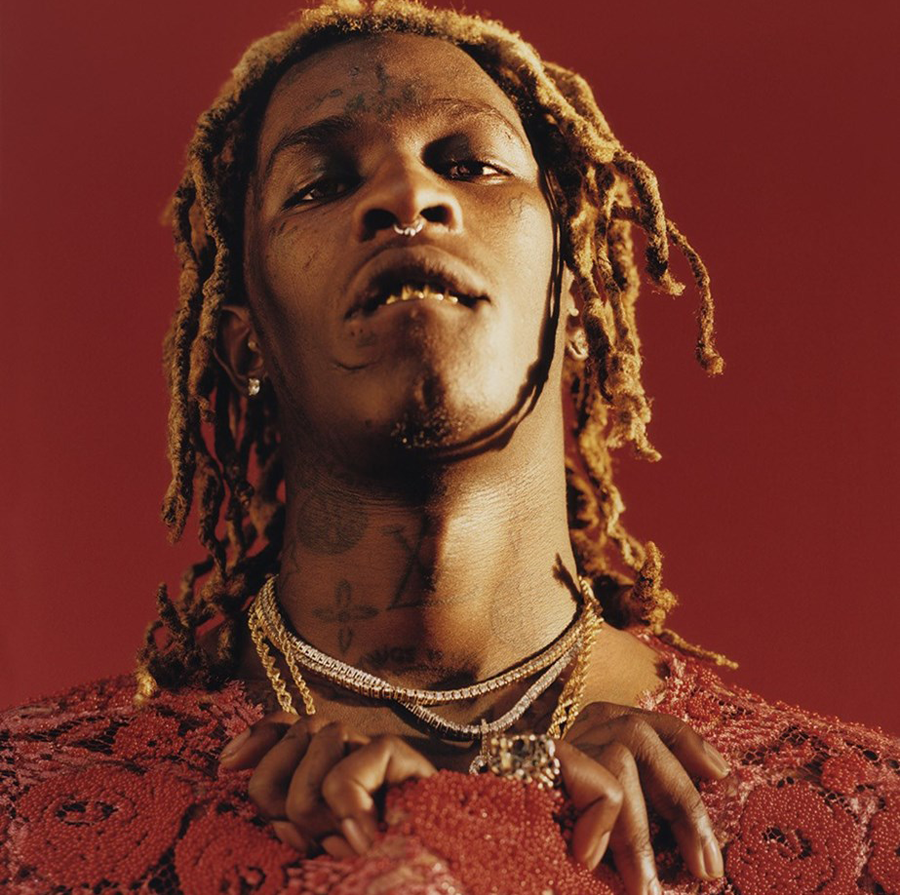The most distinguished performing arts venue in Washington, the Kennedy Center, made a grand gesture earlier this month when it announced its first-ever hip-hop season.
It’s a step forward for the center, which appears to be fully embracing hip-hop after dipping its toe into the culture with the wide-ranging One Mic festival and orchestral performances featuring Nas and Kendrick Lamar.
The inaugural hip-hop program will focus on the culture’s history and activism side, spearheaded by producer and emcee Q-Tip, formerly of A Tribe Called Quest. Beyond that, well, the possibilities are titillating — which is why Bandwidth decided to ask a few experts what they’d like to see.
Here’s what they told us.
1. Get weird
DJ Heat has two words: Young Thug. “I’m not a fan, but it would be interesting — especially if they do an orchestra type of thing,” the DJ says. After all, she says, the trio Migos had its “trap symphony.” So why not Young Thug, the envelope-pushing Atlanta rapper whose lyrics come across as either gibberish or post-verbal brilliance, depending on who you ask?
“I’d like to see just out-the-box type stuff. Because yeah, we kind of expected Kendrick [to perform with an orchestra]. We can see Nas,” she says. “But Young Thug and the NSO? It’s like, come on.”
2. Keep it positive
Javier Starks, the lyricist from D.C. whose projects often draw from hip-hop’s history, says if he was appointed the Kennedy Center’s hip-hop director, he’d take an ideological approach, in part by showing films that “aid in bridging the constantly expanding gap between hip-hop’s origins and its current role in mainstream media.”
“I’d book and showcase positive hip-hop acts who remind the world just how beautiful and moving hip-hop can be when it isn’t riddled with needless profanity, misogyny, excessive negativity and violence,” Starks says.
He adds: “All of my music is curse-free and positive, so I may be biased … but from my experiences, hip-hop in a raw, uplifting form is something the entire world can relate to.”
3. Think about ‘latitude’
It’s worth noting that the Kennedy Center “opened to the public in the fall of 1971, just as the first rumblings of what we now call hip-hop culture were hitting the street of the Bronx,” says George Washington University ethnomusicologist Kip Lornell.
Lornell says Q-Tip’s selection to head the program “perhaps says more about the institution than the man,” and he hopes the artist is “given the latitude and the support that hip-hop, which is now really mainstream American culture, deserves.”
What might that latitude entail? Lornell suggests emphasizing talent from the DMV as well as the Caribbean roots of hip-hop. He’s also interested to see what effects Q-Tip’s efforts might have on the demographics of the institution’s audience: “Will more folks of color attend programs at the Kennedy Center than in the past? What about white folks attending ‘black’ programs? Diversity (however defined) always presents a challenge and we’ll see what the Center and Q-Tip can accomplish in this realm.”
4. More live bands
Washington’s hip-hop artists know better than anyone that D.C. loves a live band — and they’d take instruments over two turntables and a microphone any day. But rapper RAtheMC doesn’t see that as a challenge. She wants the Kennedy Center to capitalize on it. “I’m big on musicianship in hip-hop,” the emcee writes in an email. “It’s always awesome to hear rap over live instrumentation.”
What would she most like to see happen at the Ken Cen? “The Roots, N.E.R.D and Kendrick Lamar along with their backing bands,” she writes. “I wouldn’t mind opening for a bill like that, either, along with my band.”
5. Get Q-Tip out of the office
“I really don’t have any guidance to offer Q-Tip, because he is one of my hip-hop Jedi masters,” says Asheru, a longtime hip-hop artist and educator from D.C. But he still has a wishlist.
Asheru wants the Kennedy Center to sponsor more hip-hop educational opportunities across D.C. and nationwide. He thinks the venue should also offer free hip-hop workshops, book hip-hop artists in residence, organize weekly hip-hop concerts at the center’s Millennium Stage. Oh, and one last thing: have “Q-Tip deejaying throughout those hallowed halls on any given day.”



Pingback: Q-Tip Is Now The Kennedy Center’s Hip-Hop Guy | adroed()